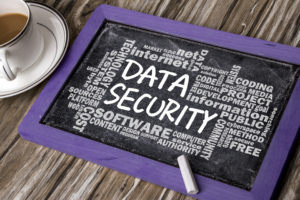
While some catastrophes cannot be predicted, there are numerous ways to prepare for them. In this article we’ll cover some of the most common data center disasters and what you can do to prepare for them.
1. Malware. Malicious attacks from a third party are one of the most common reasons a data center can suffer downtime. Whether the malicious programs lock out systems, delete data, or all but render hardware completely unusable, it’s a problem for many data centers caught unprepared.
The best way to keep a data center safe is to make sure all software and hardware is properly secured. Implement anti-virus software and ensure you have the latest version shield against evolving threats. You’ll also want to keep your software up-to-date to avoid exposure from third party malicious attacks.
2. Natural disasters. The damage natural disasters like storms and floods can cause can prove catastrophic for businesses that aren’t prepared. A total physical loss of data could occur. This can usually be circumvented by taking steps in advance to avoid data loss, such as backing up your data and establishing a disaster recovery plan.
3. Fire. Data centers run a lot of electronics at a constant rate. Sometimes this hardware gets incredibly hot. That or it’s open to numerous electrical hazards because of all the wiring. This can lead to fires, which have a devastating impact.
It’s important to keep all areas of storage well ventilated, separated, and free of clutter. This includes how power/wiring is organized. Otherwise, your data center is at risk.
4. Data corruption. Failing to scrutinize your data center’s restore services means you’re dancing with disaster. This includes putting yourself at risk for data corruption, which happens constantly. Mostly systems can correct the corruption, but left unchecked, it can compromise data with no chance of recovery. The best way to avoid the total corruption of HDD or other storage is to make sure the backup systems in place actually work.
5. Hardware failure. Hardware failure is inevitable. At some point, servers, HDDs, or some other component will fail. This is especially true for older legacy systems pushing 10 years. It’s important to do routine upgrades and replacements. Cycling out older hardware is necessary. Otherwise, a data center risks losing everything to an easily preventable problem.
No one wants to deal with a data center disaster, and the best way to avoid one is to do the necessary preparation and take precautions against common catastrophes. Remember these common occurrences and ready your business accordingly, since the price of carelessness could be total data loss.


